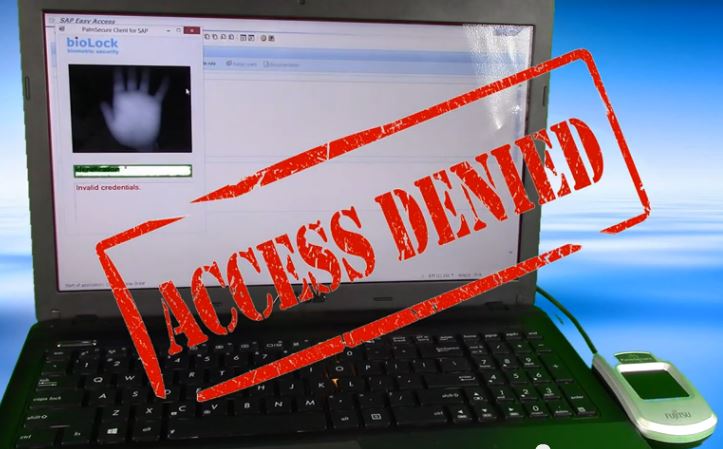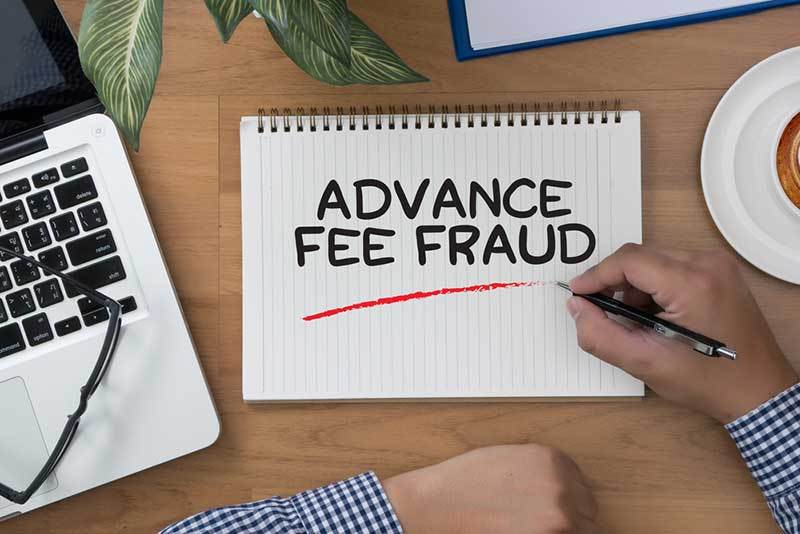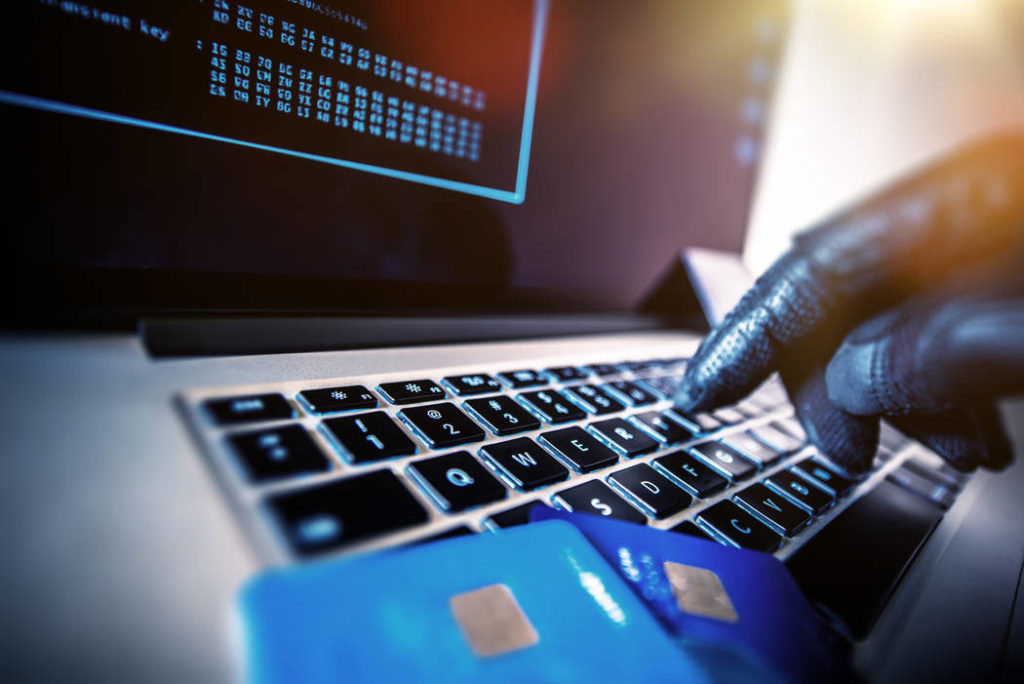(a) Whoever—
- (1) knowingly and with intent to defraud produces, uses, or traffics in one or more counterfeit access devices;
- (2) knowingly and with intent to defraud traffics in or uses one or more unauthorized access devices during any one-year period, and by such conduct obtains anything of value aggregating $1,000 or more during that period;
- (3) knowingly and with intent to defraud possesses fifteen or more devices which are counterfeit or unauthorized access devices;
- (4) knowingly, and with intent to defraud, produces, traffics in, has control or custody of, or possesses device-making equipment;
- (5) knowingly and with intent to defraud effects transactions, with 1 or more access devices issued to another person or persons, to receive payment or any other thing of value during any 1-year period the aggregate value of which is equal to or greater than $1,000;
- (6) without the authorization of the issuer of the access device, knowingly and with intent to defraud solicits a person for the purpose of—
(A) offering an access device; or
(B) selling information regarding or an application to obtain an access device;
- (7) knowingly and with intent to defraud uses, produces, traffics in, has control or custody of, or possesses a telecommunications instrument that has been modified or altered to obtain unauthorized use of telecommunications services;
- (8) knowingly and with intent to defraud uses, produces, traffics in, has control or custody of, or possesses a scanning receiver;
- (9) knowingly uses, produces, traffics in, has control or custody of, or possesses hardware or software, knowing it has been configured to insert or modify telecommunication identifying information associated with or contained in a telecommunications instrument so that such instrument may be used to obtain telecommunications service without authorization; or
- (10) without the authorization of the credit card system member or its agent, knowingly and with intent to defraud causes or arranges for another person to present to the member or its agent, for payment, 1 or more evidences or records of transactions made by an access device;
shall, if the offense affects interstate or foreign commerce, be punished as provided in subsection (c) of this section.
(b)
- (1) Whoever attempts to commit an offense under subsection (a) of this section shall be subject to the same penalties as those prescribed for the offense attempted.
- (2) Whoever is a party to a conspiracy of two or more persons to commit an offense under subsection (a) of this section, if any of the parties engages in any conduct in furtherance of such offense, shall be fined an amount not greater than the amount provided as the maximum fine for such offense under subsection (c) of this section or imprisoned not longer than one-half the period provided as the maximum imprisonment for such offense under subsection (c) of this section, or both.
(c) Penalties.—
- (1)Generally.—The punishment for an offense under subsection (a) of this section is—
- (A) in the case of an offense that does not occur after a conviction for another offense under this section—
(i) if the offense is under paragraph (1), (2), (3), (6), (7), or (10) of subsection (a), a fine under this title or imprisonment for not more than 10 years, or both; and
(ii)if the offense is under paragraph (4), (5), (8), or (9) of subsection (a), a fine under this title or imprisonment for not more than 15 years, or both; - (B) in the case of an offense that occurs after a conviction for another offense under this section, a fine under this title or imprisonment for not more than 20 years, or both; and
- (C) in either case, forfeiture to the United States of any personal property used or intended to be used to commit the offense.
- (2)Forfeiture procedure.—
The forfeiture of property under this section, including any seizure and disposition of the property and any related administrative and judicial proceeding, shall be governed by section 413 of the Controlled Substances Act, except for subsection (d) of that section.
(d) The United States Secret Service shall, in addition to any other agency having such authority, have the authority to investigate offenses under this section. Such authority of the United States Secret Service shall be exercised in accordance with an agreement which shall be entered into by the Secretary of the Treasury and the Attorney General.
(e) As used in this section—
- (1) the term “access device” means any card, plate, code, account number, electronic serial number, mobile identification number, personal identification number, or other telecommunications service, equipment, or instrument identifier, or other means of account access that can be used, alone or in conjunction with another access device, to obtain money, goods, services, or any other thing of value, or that can be used to initiate a transfer of funds (other than a transfer originated solely by paper instrument);
- (2) the term “counterfeit access device” means any access device that is counterfeit, fictitious, altered, or forged, or an identifiable component of an access device or a counterfeit access device;
- (3) the term “unauthorized access device” means any access device that is lost, stolen, expired, revoked, canceled, or obtained with intent to defraud;
- (4) the term “produce” includes design, alter, authenticate, duplicate, or assemble;
- (5) the term “traffic” means transfer, or otherwise dispose of, to another, or obtain control of with intent to transfer or dispose of;
- (6) the term “device-making equipment” means any equipment, mechanism, or impression designed or primarily used for making an access device or a counterfeit access device;
- (7) the term “credit card system member” means a financial institution or other entity that is a member of a credit card system, including an entity, whether affiliated with or identical to the credit card issuer, that is the sole member of a credit card system;
- (8) the term “scanning receiver” means a device or apparatus that can be used to intercept a wire or electronic communication in violation of chapter 119 or to intercept an electronic serial number, mobile identification number, or other identifier of any telecommunications service, equipment, or instrument;
- (9) the term “telecommunications service” has the meaning given such term in section 3 of title I of the Communications Act of 1934 (47 U.S.C. 153);
- (10) the term “facilities-based carrier” means an entity that owns communications transmission facilities, is responsible for the operation and maintenance of those facilities, and holds an operating license issued by the Federal Communications Commission under the authority of title III of the Communications Act of 1934; and
- (11) the term “telecommunication identifying information” means electronic serial number or any other number or signal that identifies a specific telecommunications instrument or account, or a specific communication transmitted from a telecommunications instrument.
(f) This section does not prohibit any lawfully authorized investigative, protective, or intelligence activity of a law enforcement agency of the United States, a State, or a political subdivision of a State, or of an intelligence agency of the United States, or any activity authorized under chapter 224 of this title. For purposes of this subsection, the term “State” includes a State of the United States, the District of Columbia, and any commonwealth, territory, or possession of the United States.
(g)
- (1) It is not a violation of subsection (a)(9) for an officer, employee, or agent of, or a person engaged in business with, a facilities-based carrier, to engage in conduct (other than trafficking) otherwise prohibited by that subsection for the purpose of protecting the property or legal rights of that carrier, unless such conduct is for the purpose of obtaining telecommunications service provided by another facilities-based carrier without the authorization of such carrier.
- (2) In a prosecution for a violation of subsection (a)(9), (other than a violation consisting of producing or trafficking) it is an affirmative defense (which the defendant must establish by a preponderance of the evidence) that the conduct charged was engaged in for research or development in connection with a lawful purpose.
(h) Any person who, outside the jurisdiction of the United States, engages in any act that, if committed within the jurisdiction of the United States, would constitute an offense under subsection (a) or (b) of this section, shall be subject to the fines, penalties, imprisonment, and forfeiture provided in this title if the offense involves an access device issued, owned, managed, or controlled by a financial institution, account issuer, credit card system member, or other entity organized under the laws of the United States, or any State, the District of Columbia, or other territory of the United States.










